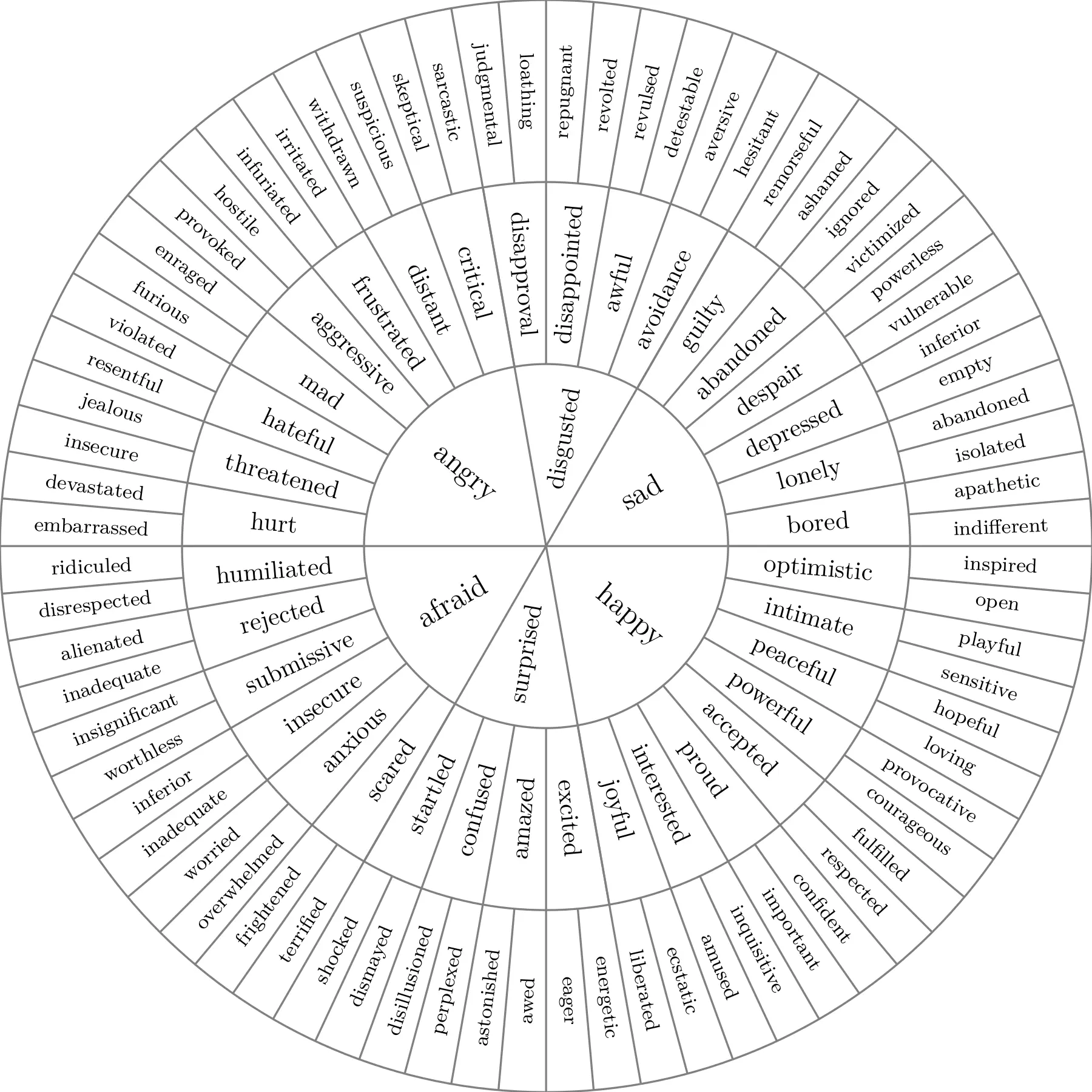Naming Emotions
“Emotion can be the enemy, if you give into your emotion, you lose yourself. You must be at one with your emotions, because the body always follows the mind.”
Practicing naming your emotions is a crucial step in developing self-awareness. To begin, make it a habit to pause and check in with yourself at various points throughout the day. During these check-ins, take a moment to identify and label the emotions you are experiencing. Use specific words to describe your feelings, such as “frustrated,” “anxious,” “elated,” or “content.” The more precise you are, the better you can understand your emotional state.
To enhance this practice, consider using an Emotions Wheel or a list of emotion words to expand your vocabulary. Often, we default to a limited set of terms like “happy,” “sad,” or “angry.” An expanded emotional vocabulary allows you to pinpoint your feelings more accurately. For instance, instead of just saying you are “angry,” you might identify that you feel “irritated,” “resentful,” or “outraged.”
Emotions Wheel
Integrate this practice into your daily routine by setting aside specific times for emotional check-ins. This could be when you wake up, during a break at work, or before you go to bed.
During these moments, reflect on recent events and how they made you feel. Writing down your emotions in your journal can be particularly effective, as it forces you to articulate your feelings clearly and provides a record you can review later to track patterns and changes over time.
In addition to self-reflection, practice naming emotions in real-time during your interactions with others. When you notice a strong emotional response, mentally label the emotion you are feeling. For example, if a conversation with a colleague makes you feel uneasy, acknowledge to yourself, “I feel anxious.”
As you become more in tune with specific named emotions, patterns will begin to emerge. You will notice that certain emotional words are tied to specific people, situations, and themes. Pay attention to these patterns, as they are important and will become key to your self-awareness journey.
This practice of naming your emotions not only enhances your understanding of yourself but also improves your emotional regulation and communication skills, making it a valuable tool for personal growth.
